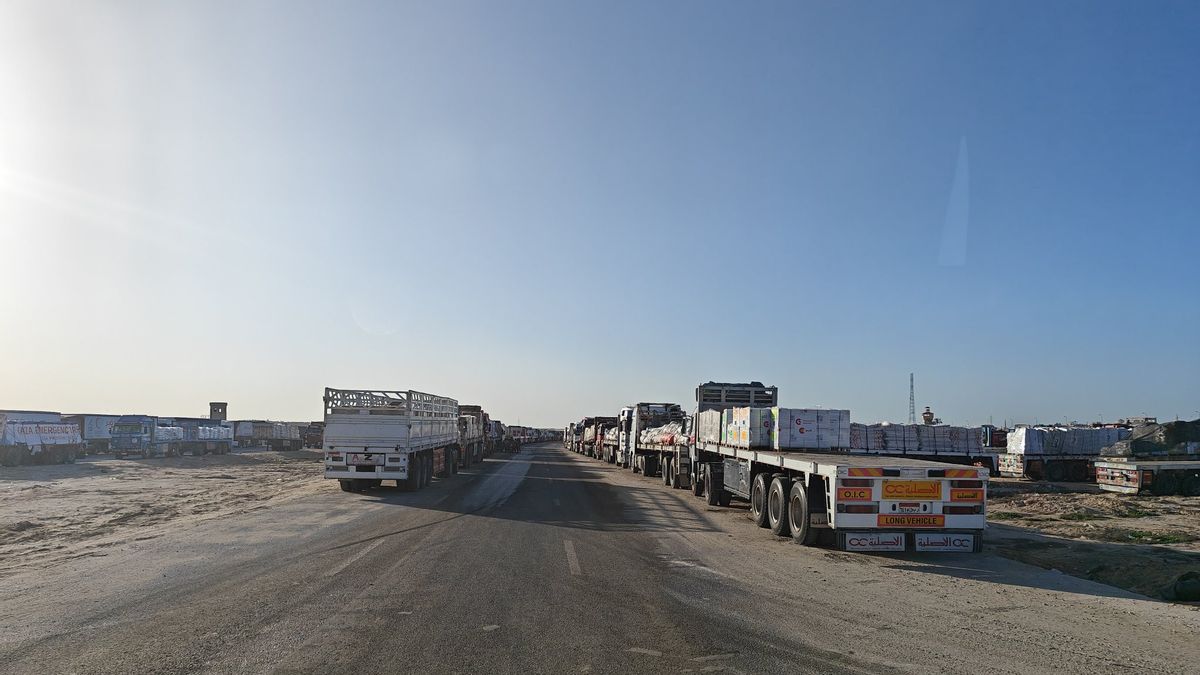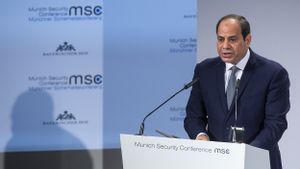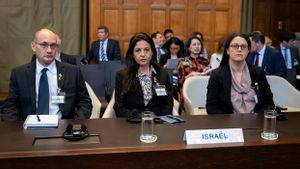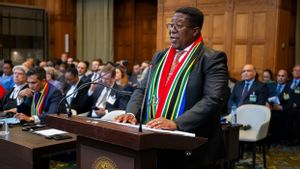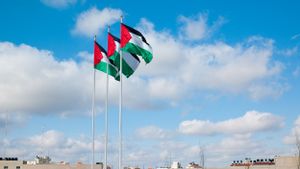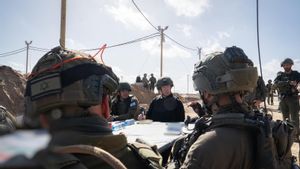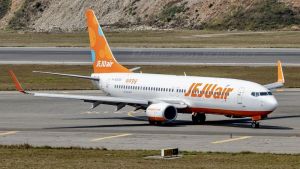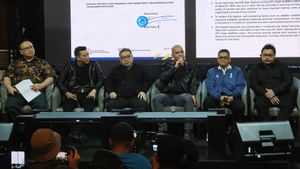JAKARTA - Egypt has told Israel it will not reopen Rafah's border with Gaza, as long as the Israeli military remains on the side of Gaza, a source said, as disputes between the two countries over the border escalate.
Egypt, which signed a US-sponsored peace agreement with Israel in 1979, reacted angrily to the Israeli military confiscation of crossings on the Gaza side and ground attacks on the city of Rafah, which it said poses a serious threat to Egyptian citizens.
Israeli forces took over the Gaza border on May 7 as part of an attack on Rafah that has exacerbated relations with Egypt. In response, Cairo announced it would no longer cooperate with Israel to transfer aid to Gaza via the crossing.
Israel tried to persuade Egypt to allow aid into the enclave through Mossad agents visiting Cairo on Wednesday, the source said.
They said Israel had made clear its military intends to maintain control of crossings on the Palestinian side even if a ceasefire agreement is reached.
"The Egyptian retaliated that Israel's position undermined efforts by Cairo, the United States and Qatar to mediate a ceasefire and raised serious doubts about the prospect of a total withdrawal from Gaza as demanded by Hamas," one source told The National News, as quoted on May 17.
"Egypt will not reopen crossings and that is his final position despite significant pressure from the US on Cairo to do so," he added.
There has been no official announcement from Cairo regarding Wednesday's meeting between Mossad officials and their Egyptian counterparts.
Egypt, which signed a US-sponsored peace agreement with Israel in 1979, reacted angrily to the Israeli military confiscation of crossings on the Gaza side and ground attacks on the city of Rafah, which it said poses a serious threat to Egyptian citizens.
As previously reported, Israel and Egypt blame each other as international aid agencies urged deescalation in Rafah, southern Gaza to prevent the risk of worsening the humanitarian situation, as well as reopening border crossings.
Officials from UNICEF, Doctors Without Borders and the Palestinian Red Crescent Society have all voiced concerns that hostilities will increase at the same time as delays in the entry of aid into the enclave.
The Israeli Foreign Minister, Israel Katz, called for Egypt to reopen Rafah's border crossings has sparked heated debates with its Egyptian counterparts, as quoted by CNN.
Foreign Minister Katz said on Twitter he had spoken with British Foreign Minister David Cameron and German Foreign Minister Alma Baerbock "about the need to persuade Egypt to reopen Rafah crossings to allow continued international humanitarian aid deliveries to Gaza."
However, the comments were criticized by Egyptian Foreign Minister Sameh Shoukry, who branded the comments as an attempt to shift errors over the Gaza humanitarian crisis to Egypt.
SEE ALSO:
Foreign Minister Shoukry accused Israel of being the cause of the crisis through its military action and its control over crossings on the Palestinian side. He asked Israel to fulfill its obligations as an occupied country and allow aid to enter Gaza via its controlled land port.
"Israel is fully responsible for the humanitarian disaster currently being faced by Palestinians in the Gaza Strip," said Foreign Minister Shoukry.
But Foreign Minister Katz reiterated Israel's stance that Hamas would not be allowed to control the Rafah crossing, saying "this is a need for security that we will not compromise."
The English, Chinese, Japanese, Arabic, and French versions are automatically generated by the AI. So there may still be inaccuracies in translating, please always see Indonesian as our main language. (system supported by DigitalSiber.id)
